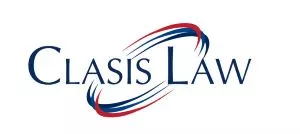In its recent judgment in Naresh Kanayalal Rajwani and Ors. Vs Kotak Mahindra Bank Limited & Anr.1, the Bombay High Court has clarified that a party is not dis-entitled from raising the ground regarding the arbitration proceedings having been vitiated due to unilateral appointment of the Arbitrator by opposite party merely because they participated in the arbitration proceedings.
Brief Facts:
The brief facts leading to the filing of the present petition are that a home loan agreement was executed between the Kotak Mahindra Bank (Respondent bank) and Naresh Kanayalal Rajmani & Ors (Petitioners), whereby certain amounts were advanced to the Petitioner. The said agreement contained an arbitration clause which authorised the Respondent bank to appoint a sole arbitrator for resolving the disputes between the parties. Subsequently, certain disputes arose between the parties, as a consequence of which the Respondent bank initiated arbitration proceedings and the same culminated in an award dated 30.1.2013 in favour of the Respondent bank. The Petitioner challenged the said award under Section 34 of the Arbitration and Conciliation Act, 1996 (“Act”) before the Bombay High Court. The High Court allowed the Section 34 petition on the ground that the award was passed by the sole arbitrator in violation of principles of natural justice.
Thereafter, the Respondent bank once again invoked the arbitration clause and unilaterally appointed an Arbitrator. The Petitioners raised a preliminary objection on the maintainability of the arbitration however, the same was rejected by the Sole Arbitrator. Therefore, the Petitioners filed their statement of defence. During the course of the proceedings, the Sole Arbitrator also unilaterally extended his mandate on 8.12.2019 and 4.6.2019 in order to complete the arbitration proceedings. Eventually, on 3.8.2019, the Sole Arbitrator pronounced an award in favour of the Respondent bank. Aggrieved, the Petitioner once again filed a petition under Section 34 of the Act before the Bombay High Court.
Submissions by the Petitioners:
The counsel for the Petitioners, inter-alia, emphasized that the entire arbitral proceedings stood vitiated for the reason that the learned Arbitrator was unilaterally appointed by the Respondent bank. It was submitted that even if the appointment of the Sole Arbitrator was in terms of the arbitration clause, it was hit by Section 12(5) of the Act read with Seventh Schedule thereof. The Petitioners also relied upon the Supreme Court's judgment in Perkins Eastman Architects DPC and Anr. Vs. HSCC (India) Limited.2 Therefore, the Petitioners submitted that the impugned award was liable to be set aside.
Submissions by the Respondent:
In response to the submissions of the Petitioners, the counsel for the Respondent bank raised the following arguments:
- Since the ground pertaining to Section 12(5) of the Act was not specifically raised in the petition, the same ought not to be considered by the Court.
- The Petitioners failed to raise an objection under Section 12(5) of the Act before the Sole Arbitrator and therefore by virtue of Section 4 of the Act it had waived its right to do so subsequently.
- Since the home loan agreement was executed in the year 2006, the amendment brought in Section 12(5) with effect from October 23, 2015 was not applicable. Hence, there was no substance in the ground raised under Section 12(5) of the Act.
Observations and Conclusion by the High Court:
In regards to the Respondent bank's contention that the ground pertaining to Section 12(5) was not specifically raised in the petition, the Court observed that in the petition, the award was challenged as being perverse, against settled provisions of law and public policy. Although, the said ground appeared to be general in nature, it would cover the ground raised on behalf of the Petitioners in the context of Section 12(5) of the Act. This is so because, the same is a pure question of law, which goes to the very root of the matter and thus, the Court was inclined to consider the same on merits.
In respect of Section 12(5) of the Act, the Court noted that the same was inserted by way of amendment with effect from 23.10.2015. The said section starts with the words ‘Notwithstanding any prior agreement to the contrary', which indicates that Section 12(5) read with Seventh Schedule would apply in full force even to agreements executed prior to the introduction of the aforesaid amendment. In the present case, the Respondent bank invoked the arbitration proceedings in 2018, much after the amendment came into force.
The Court further opined that the proviso to Section 12 (5) stipulates the specific manner in which the parties can waive the applicability of the said provision i.e, by an express agreement. The Petitioners admittedly did not follow the said procedure for seeking a waiver, therefore, merely because the Petitioners participated in the arbitration proceedings, it cannot be said that they were disentitled from raising the ground that the arbitration proceedings were vitiated due to unilateral appointment of the arbitrator.
Taking note of the judgment in Perkins Eastman Architects DPC (supra), the High Court also noted that the Supreme Court has clearly laid down that a person having an interest in the dispute or in the outcome thereof, is ineligible not only to act as an Arbitrator, but is also rendered ineligible to appoint anyone else as an Arbitrator. In the present case, the arbitration clause gave power and authority to the Respondent bank to unilaterally appoint the Arbitrator. As a matter of fact, the sole arbitrator was unilaterally appointed by the Respondent bank which clearly fell in the teeth of the position of law clarified by the Supreme Court in the context of Section 12(5) of the Act read with Seventh Schedule thereof.
In the light of the aforementioned observations and the facts of the present case, the Court held that right from the stage of appointment of the Arbitrator, the proceedings were vitiated. Accordingly, the petition was allowed and the arbitral award was set aside.
Footnotes
1. [Comm. Arbitration Petition (L) No. 1444 of 2019 dated November 23, 2022
2. (2020) 20 SCC 620
The content of this article is intended to provide a general guide to the subject matter. Specialist advice should be sought about your specific circumstances.

